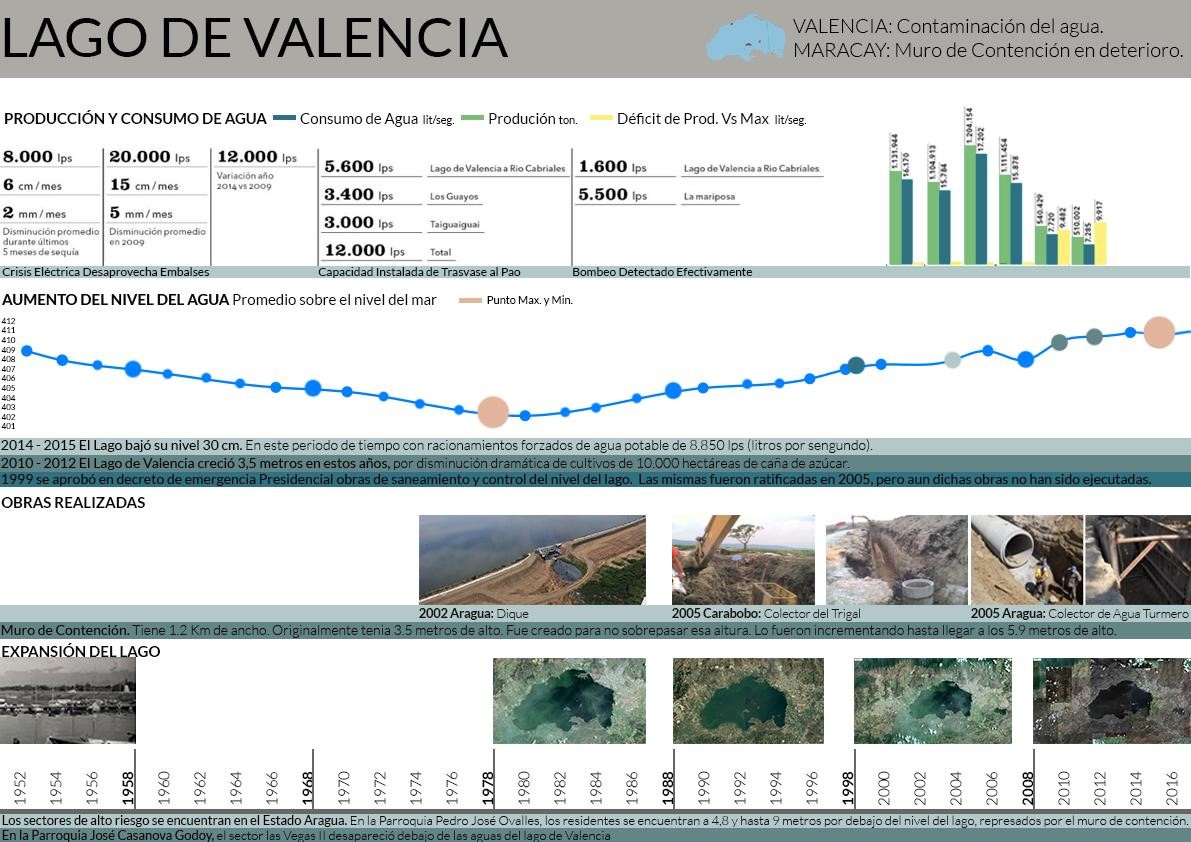Evolution of Lake Valencia, water consumption, and effects of sea level rise
Image Credit/ Bibliography
Trasvase de agua desde el Lago de Valencia, Venezuela | EJAtlas. (2016, May 8) Retrieved from https://ejatlas.org/conflict/el-trasvase-de-las-aguas-del-lago-de-valencia
Cities are differentiated from their hinterlands by their density and access to work, services, products, entertainment, and personal development opportunities. In Venezuela, cities like Caracas are understood through a center versus periphery relationship that privileges cities over the rest of the country.
This disproportionate distribution of resources can be defined as uneven development. This is important, because a development plan for Venezuela that focuses only on the main cities will tend to exacerbate the center-periphery divide, unless the forms of territorial, economic, and social relationships are re-imagined.
The UN Economic Commission for Latin America and the Caribbean (CEPAL) has many studies that link urban and economic decentralization with higher levels of national development.That is why myself, Karen Mata (MAUD’18), and a group of students from the Simon Bolivar University are starting a research project on Lake Valencia, the second largest water body in Venezuela, to try to better understand the relationship between the city, environmental considerations, and economic activities.
After the expropriation of more than 24,000 acres of Sugar Cane fields and its later abandonment by the government, Lake Valencia has been expanding and encroaching on surrounding working-class neighborhoods, endangering many industrial and institutional activities located at its borders over the last decade. Moreover, high levels of pollution in the lake as a consequence of receiving industrial and city waste waters, the expansion is not only compromising the safety of the nearby residents but also the regional water system. .
To face this problem means to break the urban-rural cliché and re-imagine the system of relationships between different scales of populated centers, between agricultural and industrial activities, and between urban and environmental vulnerability.
The economic limitations that Venezuela will face during its reconstruction will inevitably limit the type of infrastructure that can be implemented. Nevertheless, it is imperative that projects confront more than one issue at a time, integrating management of natural resources with economic productivity, housing, and public space.
It will be fundamental to focus urban projects in promoting economic and social development, while building the infrastructure and services needed to face the urban and environmental challenges that we will are experiencing. This will only be possible if we manage to cultivate the technical, economic, social, and institutional capacities at a local scale. By transforming the highly centralized governance model in Venezuela, we could enable new forms of institutional collaboration across the territory.
This text was written for one of the modules of the session Taller Ciudad Venezuela (Venezuela City Workshop) about the urban situation in Venezuela for an event organized by Venezuelan undergraduate students called Plan País (Country Plan) held in Boston University on March 30th and 31st. The session was moderated by Ignacio Cardona (DDes 19), with Andreina Seijas (DDes 20) as note taker. This is the first time that a session about the role of cities in the reconstruction Venezuela was introduced. It is an event that has taken place for more than eight years where groups of undergraduate students meet to study the future of the country.

